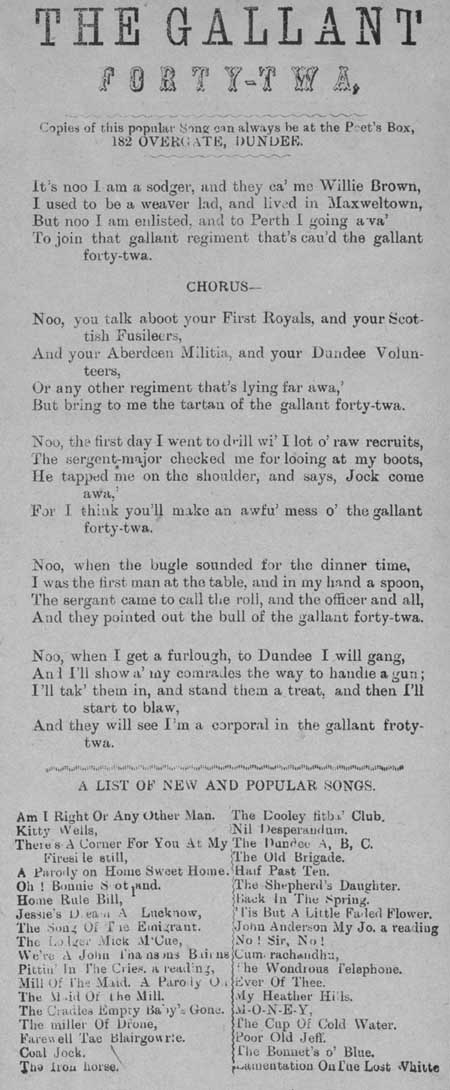
 |
| home | background | illustrations | distribution | highlights | search & browse | resources | contact us |
Broadside ballad entitled 'The Gallant Forty-Twa' |
CommentaryThis song's first verse runs: 'It's noo I am a sodger, and they ca' me Willie Brown, / I used to be a weaver lad, and lived in Maxweltown, / But noo I am enlisted, and to Perth I going awa' / To join that gallant regiment that's cau'd the gallant forty-twa.' It was published by the Poet's Box in Dundee. At the bottom of the sheet is a list of other songs published by them. The 'forty-twa' is the 42nd Highland Regiment, more commonly known as the Black Watch. It was established in 'to be constant guard for securing the peace in the Highlands' and 'to watch upon the braes'. The name comes from the dark tartans it's members wear, which was originally to distinguish them from regular troops who wore red uniforms. The narrator here has left Dundee to join them. It is not clear what the connection between the different Poet?s Boxes were. They almost certainly sold each other?s sheets. It is known that John Sanderson in Edinburgh often wrote to the Leitches in Glasgow for songs and that later his brother Charles obtained copies of songs from the Dundee Poet?s Box. There was also a Poet?s Box in Belfast from 1846 to 1856 at the address of the printer James Moore, and one at Paisley in the early 1850s, owned by William Anderson. Early ballads were dramatic or humorous narrative songs derived from folk culture that predated printing. Originally perpetuated by word of mouth, many ballads survive because they were recorded on broadsides. Musical notation was rarely printed, as tunes were usually established favourites. The term 'ballad' eventually applied more broadly to any kind of topical or popular verse.
|
Probable period of publication:
1880-1900 shelfmark: L.C.Fol.70(25a)

|